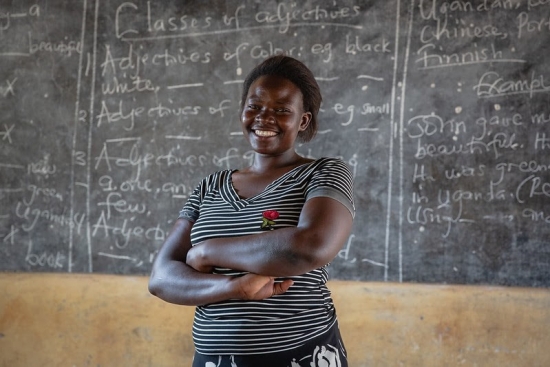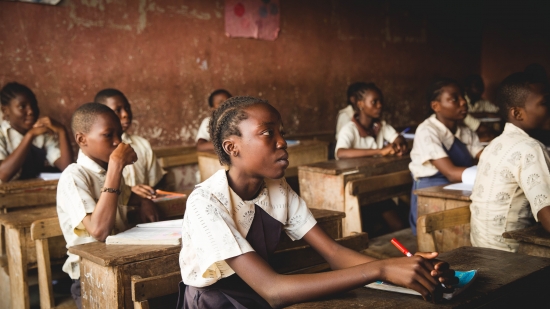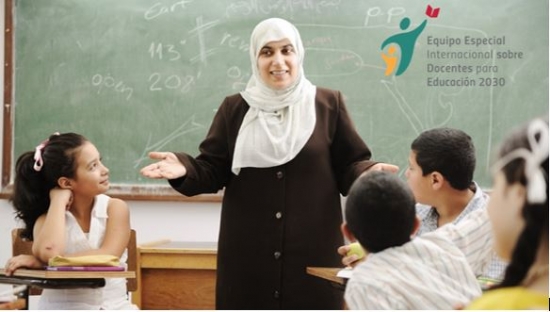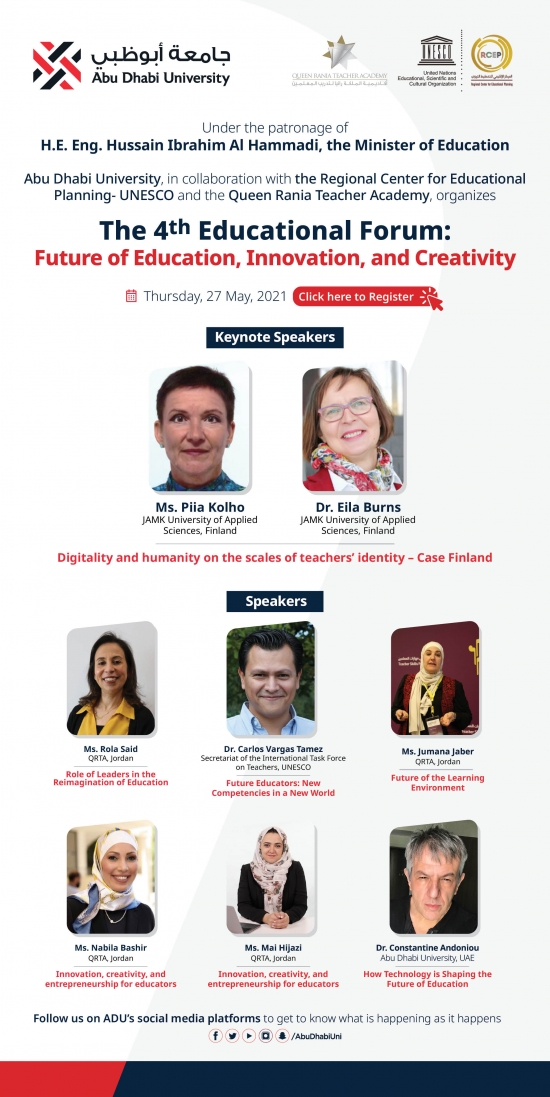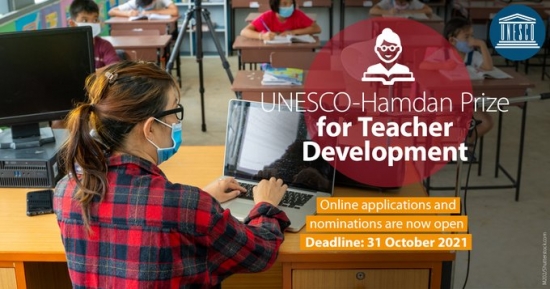The Teacher Task Force at the CIES 2024 - The Power of Protest
| Quand: | Lundi 11 mars 2024 - 08:00 - Mercredi 13 mars 2024 - 14:30 |
| Où: |
Hyatt Regency Miami
|
| Fuseau horaire: |
America/New_York
|
| Organisateurs: |
|
Join the Teacher Task Force and UNESCO for two panel discussions at the CIES Conference 2024. The event is open to CIES members only. Consult the official webpage here.
Framing the future of teacher wellbeing in low-resource and crisis contexts: definitions, measures and motivations
11 March , 8:00 to 9:30am Hyatt Regency Miami, Floor: Third Level, Stanford
Teacher occupational wellbeing (TWB)—“how teachers feel and function in their jobs” (Falk et al., 2019)—is a critical and urgent issue. In the best of times, teaching is a demanding profession (Greenberg, Brown and Abenavoli, 2016), but after the global school closures precipitated by the COVID-19 pandemic, teaching has become one of the most stressful professions (Steiner and Woo, 2021). This stress can lead to burnout and professional attrition (Borg, Riding and Falzon, 1991; Skaalvik and Skaalvik, 2018). Low levels of teacher wellbeing have been associated with higher rates of turnover in the profession, as well as absenteeism (Ingersoll, 2003; Albulescu, Tuşer and Sulea, 2018). On the other hand, high levels of wellbeing for teachers are associated with teachers staying longer in the profession because of increased self-efficacy and job satisfaction (Collie, Shapka and Perry, 2012; Zee and Koomen, 2016). This is especially important in light of global teacher shortages. By some estimates, the global education community will need to recruit about 24 million primary school teachers by 2030 to meet the growing need for classroom instruction and learning, with 14% of this recruitment being for new teaching positions and the rest needing to fill gaps being left by teachers who retire or leave the profession (UNESCO Institute for Statistics, 2016). This teacher shortage is especially acute in Sub-Saharan Africa where 70% of countries face current teacher shortages, a trend that will continue unless there are dramatic system-level changes to teacher hiring and retention policies and practices (Ibid).
While there has been a growing body of research on teacher wellbeing, what it means, and how it functions, there is a dearth of knowledge of what teacher wellbeing actually looks like for educators in low-resource and fragile contexts (D’Sa et al., 2023; Falk, Shephard, & Mendenhall, 2022; Kirk & Winthrop, 2013; Wolf et al., 2015). More importantly, there is a need to more fully understand how teachers in these contexts understand their own wellbeing and the factors that support or hinder it. Indeed, several recent efforts to provide a framework for TWB (Brandt & Lopes Cardozo, 2023; Falk et al., 2019; McCallum et al., 2017; Viac & Fraser, 2020) have used a multidimensional perspective that has focused on external and internal factors in the settings and systems around the teacher. But these different factors can manifest differently, and affect teachers differentially, depending on the social, cultural, and historical context within which teachers work. Indeed, factors at different levels of the ecological system “can increase a teacher’s risk for negative wellbeing outcomes or their propensity toward positive wellbeing outcomes depending on the context in which the teacher lives and works.” (Falk et al., 2019; p.10). Hence, understanding not just what factors affect teachers but how they manifest and interact with each other in different contexts is important if we are to constructively address teachers’ wellbeing in low resource and crisis contexts. This is especially important as teachers continue to be on the frontlines of delivering life-saving and sustaining knowledge and skills to children and youth in complex and uncertain times, often protesting the status quo to re-imagine a more just and inclusive future for their learners. Teachers take on this work with limited support and in increasingly politically-charged and contested environments.
This panel aims to deepen our understanding of TWB in low-resource and crisis contexts to better comprehend how teachers make meaning of TWB, how different assets and factors around teachers affect their wellbeing, and how to address TWB in a manner that respects the agency of teachers in the process. Spanning Sub-Saharan Africa, South Asia, and South America and the Caribbean, the four papers examine how policies and practices of teacher management and teacher professional development alongside teachers’ lived experiences in their schools and communities influence their professional wellbeing. The papers draw on qualitative and quantitative methodologies to privilege teachers’ perspectives and promote their experiences as essential evidence in better understanding, and ultimately supporting, teacher wellbeing in low-resource, forced displacement, and conflict-affected contexts.
The first paper in this panel focuses on teacher management policies concerning teacher salary and benefits in South Sudan and Uganda. Drawing on nearly 200 interviews with refugee and national teachers in both countries, this paper demonstrates how low and irregular salaries exacerbate the challenges teachers’ face meeting their own and their families’ basic needs and contribute to teachers’ declining status in society. While this drives many teachers to leave the profession, others persist in the profession due to their strong vocation and desire to give back to their communities. In the second paper, we pivot our focus to examine the ways in which teachers’ work can serve as a protective factor for their wellbeing in contexts of forced displacement. Drawing from a mixed methods study with 555 refugee teachers in Cox’s Bazar (Bangladesh), this paper illustrates how the support and respect teachers receive from their community due to their role as educators enhance their sense of professional wellbeing. Designing contextually-relevant measures of teacher wellbeing is the focus of the third paper, which compares teacher’s conceptions of TWB across four different contexts and discusses how these differences and similarities are incorporated in the measurement of TWB in Colombia, Haiti, Honduras, and Liberia. The last paper then focuses on the relationship between teacher professional development (TPD) and teacher wellbeing. Exploring the implementation of a TWB intervention in Uganda, this paper demonstrates how to design a TPD intervention in partnership with teachers in Uganda, including the methods used to ensure that the intervention is relevant and responsive for teachers’ needs.
Let’s talk about transforming teaching through social justice: insights from the UN High-Level Panel on the Teaching Profession
13 March, 1:30 to 2:30pm, Hyatt Regency Miami, Floor: Third Level, Ashe Auditorium
Speakers: Carlos Vargas - Chief, UNESCO’s Section for Teacher Development and Teacher Task Force Secretariat, David Edwards (Education International), Amita Chudgar, Martial Dembele, Beatrice Avalos and Jordan Naidoo.
Around the globe, education systems are facing major challenges regarding the recruitment and retention of teachers. This Dialogue panel discusses the nature of this global crisis in education, focusing attention specifically on the Transforming Education Summit (TES) convened by the United Nations Secretary-General, in September 2022. The Secretary-General’s vision statement at the TES made clear that a fundamental change was needed regarding the role and the treatment of teachers. It is in this context that a High-Level Panel (HLP) on the Teaching Profession was established to produce a new vision and a set of recommendations on the teaching profession for the benefit of teachers, students, parents, and education systems worldwide. This Dialogue IV panel brings together colleagues who were closely involved with the HLP since its inception, and members of the expert group whose knowledge and expertise informed the HLP deliberations. These groups of colleagues will each share unique insights emerging from the process of convening the HLP, the deliberations of HLP, and the resultant report and recommendations.
